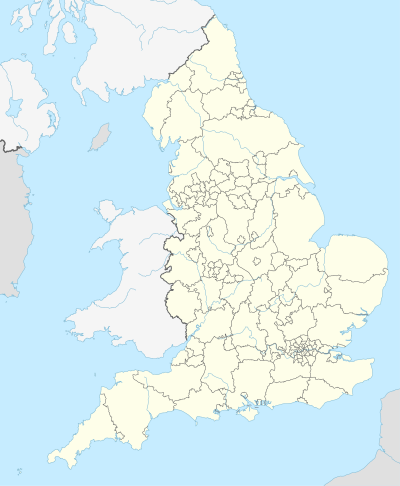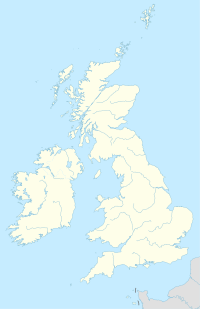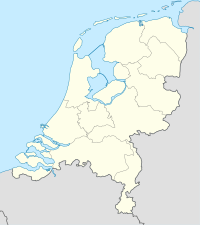1999 Cricket World Cup
 Logo of the ICC Cricket World Cup 1999 | |
| Dates | 14 May – 20 June 1999 |
|---|---|
| Administrator(s) | International Cricket Council |
| Cricket format | One Day International |
| Tournament format(s) | Round robin and Knockout |
| Host(s) | |
| Champions | |
| Runners-up | |
| Participants | 12 |
| Matches | 42 |
| Player of the series | |
| Most runs | |
| Most wickets | |
The 1999 ICC Cricket World Cup, also branded as England '99, was the seventh edition of the Cricket World Cup, organised by the International Cricket Council (ICC). It was hosted primarily by England, with selected matches also played in Scotland, Ireland, Wales and the Netherlands. The tournament was won by Australia, who beat Pakistan by 8 wickets in the final at Lord's in London.
The tournament was hosted three years after the previous Cricket World Cup, deviating from the usual four-year gap.[1]
Format
[edit]It featured 12 teams, playing a total of 42 matches. In the group stage, the teams were divided into two groups of six; each team played all the others in their group once. The top three teams from each group advanced to the Super Sixes, a new concept for the 1999 World Cup; each team carried forward the points from the games against the other qualifiers from their group and then played each of the qualifiers from the other group (in other words, each qualifier from Group A played each qualifier from Group B and vice versa). The top four teams in the Super Sixes advanced to the semi-finals.
Qualification
[edit]The 1999 World Cup featured 12 teams, which was the same as the previous edition in 1996. The hosts England and the eight other test nations earned automatic qualification to the World Cup. The remaining three spots were decided at the 1997 ICC Trophy in Malaysia.
22 nations competed in the 1997 edition of the ICC Trophy. After going through two group stages, the semi-finals saw Kenya and Bangladesh qualify through to the World Cup. Scotland would be the third nation to qualify as they defeated Ireland in the third-place playoff.[2]
| Team | Method of qualification | Finals appearances | Last appearance | Previous best performance | Group |
|---|---|---|---|---|---|
| Hosts | 7th | 1996 | Runners-up (1979, 1987, 1992) | A | |
| Full member | 7th | 1996 | Champions (1987) | B | |
| 7th | 1996 | Champions (1983) | A | ||
| 7th | 1996 | Semi-finals (1975, 1979, 1992) | B | ||
| 7th | 1996 | Champions (1992) | B | ||
| 3rd | 1996 | Semi-finals (1992) | A | ||
| 7th | 1996 | Champions (1996) | A | ||
| 7th | 1996 | Champions (1975, 1979) | B | ||
| 5th | 1996 | Group stage (All) | A | ||
| 1997 ICC Trophy winner | 1st | — | Debut | B | |
| 1997 ICC Trophy runner-up | 2nd | 1996 | Group stage (1996) | A | |
| 1997 ICC Trophy third place | 1st | — | Debut | B |
Venues
[edit]England
[edit]| Venue | City | Capacity | Matches |
|---|---|---|---|
| Edgbaston Cricket Ground | Birmingham, West Midlands | 21,000 | 3 |
| County Cricket Ground | Bristol | 8,000 | 2 |
| St Lawrence Ground | Canterbury, Kent | 15,000 | 1 |
| County Cricket Ground | Chelmsford, Essex | 6,500 | 2 |
| Riverside Ground | Chester-le-Street, County Durham | 15,000 | 2 |
| County Cricket Ground | Derby, Derbyshire | 9,500 | 1 |
| County Cricket Ground | Hove, Sussex | 7,000 | 1 |
| Headingley | Leeds, West Yorkshire | 17,500 | 3 |
| Grace Road | Leicester, Leicestershire | 12,000 | 2 |
| Lord's | London, Greater London | 28,000 | 3 |
| The Oval | London, Greater London | 25,500 | 3 |
| Old Trafford | Manchester, Greater Manchester | 22,000 | 3 |
| County Cricket Ground | Northampton, Northamptonshire | 6,500 | 2 |
| Trent Bridge | Nottingham, Nottinghamshire | 17,500 | 3 |
| County Cricket Ground | Southampton, Hampshire | 6,500 | 2 |
| County Cricket Ground | Taunton, Somerset | 6,500 | 2 |
| New Road | Worcester, Worcestershire | 4,500 | 2 |
Outside England
[edit]Scotland played two of their Group B matches in their home country becoming the first associate nation to host games in a World Cup. One Group B match was played in Wales and Ireland respectively, while one Group A match was played in the Netherlands.
| Venue | City | Capacity | Matches |
|---|---|---|---|
| VRA Cricket Ground | Amstelveen, Netherlands | 4,500 | 1 |
| Sophia Gardens | Cardiff, Wales | 15,653 | 1 |
| Clontarf Cricket Club Ground | Dublin, Ireland | 3,200 | 1 |
| The Grange Club | Edinburgh, Scotland | 3,000 | 2 |
Venues in Wales, Scotland and Ireland |
Venues in the Netherlands | ||
Squads
[edit]Group stage
[edit]Pool A
[edit]| Pos | Team | Pld | W | L | NR | T | NRR | Pts | PCF |
|---|---|---|---|---|---|---|---|---|---|
| 1 | 5 | 4 | 1 | 0 | 0 | 0.86 | 8 | 2 | |
| 2 | 5 | 3 | 2 | 0 | 0 | 1.28 | 6 | 0 | |
| 3 | 5 | 3 | 2 | 0 | 0 | 0.02 | 6 | 4 | |
| 4 | 5 | 3 | 2 | 0 | 0 | −0.33 | 6 | N/A | |
| 5 | 5 | 2 | 3 | 0 | 0 | −0.81 | 4 | N/A | |
| 6 | 5 | 0 | 5 | 0 | 0 | −1.20 | 0 | N/A |
15 May 1999
Scorecard |
v
|
||
- Zimbabwe won the toss and elected to field.
- Jimmy Kamande (Ken) made his ODI debut.
19 May 1999
Scorecard |
v
|
||
- India won the toss and elected to field.
- India were fined four overs for a slow over rate in the first innings.
26 May 1999
Scorecard |
v
|
||
- South Africa won the toss and elected to field.
- South Africa qualified for Super Sixes stage. Kenya eliminated.
29–30 May 1999
Scorecard |
v
|
||
- England won the toss and elected to field.
- India and Zimbabwe qualified for Super Sixes stage of tournament and England were eliminated.
Pool B
[edit]| Pos | Team | Pld | W | L | NR | T | NRR | Pts | PCF |
|---|---|---|---|---|---|---|---|---|---|
| 1 | 5 | 4 | 1 | 0 | 0 | 0.51 | 8 | 4 | |
| 2 | 5 | 3 | 2 | 0 | 0 | 0.73 | 6 | 0 | |
| 3 | 5 | 3 | 2 | 0 | 0 | 0.58 | 6 | 2 | |
| 4 | 5 | 3 | 2 | 0 | 0 | 0.50 | 6 | N/A | |
| 5 | 5 | 2 | 3 | 0 | 0 | −0.52 | 4 | N/A | |
| 6 | 5 | 0 | 5 | 0 | 0 | −1.93 | 0 | N/A |
16 May 1999
Scorecard |
v
|
||
- Pakistan won the toss and elected to bat.
- Ricardo Powell (WI) made his ODI debut.
20 May 1999
Scorecard |
v
|
||
- Scotland won the toss and elected to field.
- Ian Stanger (Sco) made his ODI debut.
- Scotland conceded 59 extras, the joint highest in an ODI.[3]
27 May 1999
Scorecard |
v
|
||
- Scotland won the toss and elected to bat.
- Greig Williamson (Sco) made his ODI debut.
- Scotland were eliminated as a result of this match.
28 May 1999
Scorecard |
v
|
||
- New Zealand won the toss and elected to field.
- Pakistan qualified for Super Six stage.
30 May 1999
Scorecard |
v
|
||
- Australia won the toss and elected to field.
- Australia needed to score 111 within 47.2 overs to qualify for the Super Six stage of the tournament. Australia qualified for the Super Sixes and Bangladesh were eliminated.
- Ridley Jacobs (WI) became the first cricketer to carry his bat in a World Cup match.[4]
31 May 1999
Scorecard |
v
|
||
- New Zealand won the toss and elected to field.
- New Zealand needed to score 122 within 21.2 overs to qualify for Super Sixes stage. New Zealand qualified for Super Sixes and West Indies were eliminated.
Super Six
[edit]Teams who qualified for the Super Six stage only played against the teams from the other group; results against the other teams from the same group were carried forward to this stage. Results against the non-qualifying teams were therefore discarded at this point.
As a result of League match losses against New Zealand and Pakistan, even though Australia finished second in their group, they progressed to the Super Six stage with no points carried forward (PCF). India faced similar circumstances, finishing 2nd in their group but carrying forward 0 points after losing to fellow qualifiers Zimbabwe and South Africa.
During their super six clash, Pakistan and India were officially at war at the time of their match, the only time this has ever happened in the history of the sport.[5][6][7]
| Points carried forward (PCF) | |
|---|---|
| Results | Against qualified teams |
| Win | 2 points |
| No result / tie | 1 points |
| Loss | 0 point |
| Pos | Team | Pld | W | L | NR | T | NRR | Pts | PCF |
|---|---|---|---|---|---|---|---|---|---|
| 1 | 5 | 3 | 2 | 0 | 0 | 0.65 | 6 | 4 | |
| 2 | 5 | 3 | 2 | 0 | 0 | 0.36 | 6 | 0 | |
| 3 | 5 | 3 | 2 | 0 | 0 | 0.17 | 6 | 2 | |
| 4 | 5 | 2 | 2 | 1 | 0 | −0.52 | 5 | 2 | |
| 5 | 5 | 2 | 2 | 1 | 0 | −0.79 | 5 | 4 | |
| 6 | 5 | 1 | 4 | 0 | 0 | −0.15 | 2 | 0 | |
| Source: Cricinfo | |||||||||
6–7 June 1999
Scorecard |
v
|
||
- Zimbabwe won the toss and elected to bat.
- Rain interrupted play . No play was possible on reserve day for rain.
8 June 1999
Scorecard |
v
|
||
- India won the toss and elected to bat.
- This was the first and only time two nations played at the world cup while officially at war.
10 June 1999
Scorecard |
v
|
||
- South Africa won the toss and elected to bat.
- South Africa qualified for the semi-finals.
11 June 1999
Scorecard |
v
|
||
- Pakistan won the toss and elected to bat.
- Pakistan qualified for the semi-finals.
- Saqlain Mushtaq (Pak) became the second bowler to take a hat-trick in a World Cup match.
12 June 1999
Scorecard |
v
|
||
- India won the toss and elected to bat.
- New Zealand qualified for the semi-finals and India were eliminated.
13 June 1999
Scorecard |
v
|
||
- South Africa won the toss and elected to bat.
- Australia qualified for the semi-finals and Zimbabwe were eliminated.
Semi-finals
[edit]| Semi-finals | Final | |||||
| 16 June – Old Trafford, Manchester | ||||||
| 241/7 | ||||||
| 20 June – Lord's, London | ||||||
| 242/1 | ||||||
| 132 | ||||||
| 17 June – Edgbaston, Birmingham | ||||||
| 133/2 | ||||||
| 213 | ||||||
| 213 | ||||||
- Australia progressed to the final because they finished higher in the Super Six table than South Africa due to having won their head to head Super Six match.[8]
16 June 1999
Scorecard |
v
|
||
- New Zealand won the toss and elected to bat.
- Pakistan qualified for the final for second time after 1992.
17 June 1999
Scorecard |
v
|
||
Final
[edit]Statistics
[edit]
|
Match balls
[edit]A new type of cricket ball, the white 'Duke', was introduced for the first time in the 1999 World Cup. British Cricket Balls Ltd claimed that the balls behaved identically to the balls used in previous World Cups,[9] experiments showed they were harder and swung more.[10]
Media
[edit]The host broadcasters for television coverage of the tournament were Sky and BBC Television.[11] In the UK, live games were divided between the broadcasters, with both screening the final live.[11] This was to be BBC's last live cricket coverage during that summer, with all of England's home Test series being shown on Channel 4 or Sky from 1999 onwards; the BBC did not show any live cricket again until August 2020.[12]
References and notes
[edit]- ^ "Sourav Ganguly Doubtful About ICC's Plans To Host Cricket World Cup Every Three Years". Outlook. PTI. 16 October 2019. Retrieved 23 November 2020.
- ^ "Carlsberg ICC Trophy, Malaysia Headlines". Retrieved 31 July 2019.
- ^ "Most extras in an ODI innings".
- ^ "Cricket World Cup 2019: Ferguson, Henry skittle Sri Lanka for 136". Cricket Country. June 2019. Retrieved 1 June 2019.
- ^ "1999: When Pakistan and India went to war, on and off the field". 18 March 2016. Retrieved 19 August 2022.
- ^ "While Our Armies Battled In Kargil, India Faced Off Against Pakistan In A Do-Or-Die World Cup Game". 26 July 2020. Retrieved 19 August 2022.
- ^ "World Cup 1999: India and Pakistan put aside Kargil to battle on field". 8 February 2015. Retrieved 19 August 2022.
- ^ 1999 World Cup Playing Conditions - "When two teams have both equal points and equal wins, the team which was the winner of the match played between them (in either the Group or Super Six Matches) will be placed in the higher position.". ESPNcricinfo. Retrieved 14 July 2024.
- ^ "The swinging Duke is not all it seams". The Independent. London. 9 May 1999. Archived from the original on 1 May 2022.
- ^ "Why white is the thing for swing". The Guardian. London. 14 May 1999.
- ^ a b ECB Media Release (10 March 1998). "Live coverage of the Cricket World Cup – to be staged in the UK next year". ESPN Cricinfo. Retrieved 25 November 2014.
- ^ "BSkyB lands England Test coverage". BBC. 15 December 2004. Retrieved 17 May 2014.
External links
[edit]- Cricket World Cup 1999 Scorecards in CricketFundas
- Cricket World Cup 1999 from Cricinfo
- 1999 Cricket World Cup
- 1999 in English cricket
- 1999 in Irish sport
- 1999 in Dutch sport
- 1999 in Scottish sport
- International sports competitions in Edinburgh
- International cricket competitions from 1997–98 to 2000
- International cricket competitions in England
- International cricket competitions in Ireland
- International cricket competitions in the Netherlands
- International cricket competitions in Scotland
- International cricket competitions in Wales
- May 1999 sports events in Europe
- June 1999 sports events in Europe



